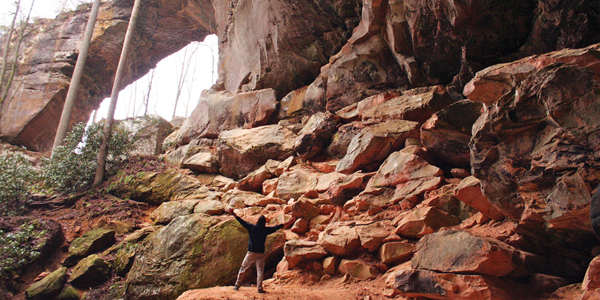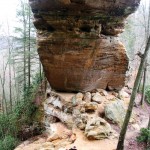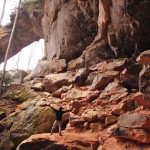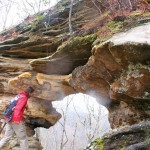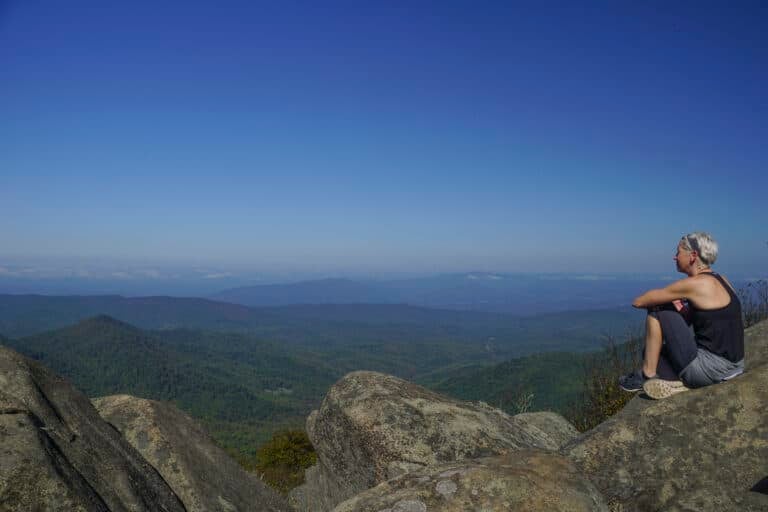Mention the Red River Gorge to a rock climber and he’s likely to start salivating. Kentucky’s Red has more than 200 miles of steep sandstone cliffs and has become a mecca for sport and trad climbers in the last few decades. It is a world-class climbing destination in the East rivaled only by the New River Gorge. But mention the Red to a hiker who might not think that clinging to a cliff by his fingertips 100 feet above the ground is a fun thing to do on a Saturday, and you might be met with a blank stare. Particularly if that hiker hails from outside of the Bluegrass State.
“The amount of use in the Red per square foot far exceeds most other national forest units and is actually on par with most national park units,” says Charlie Rowe, a forest service ranger who leads a volunteer maintenance crew inside the Red. “But most of those visitors are from either Louisville or Cincinnati.”
Particularly for those of us who live on the eastern flank of the Appalachian Mountains, we have so many outdoor destinations in our own backyard, we don’t think of driving four hours into Kentucky to get our boots dirty. But we should. The Red River Gorge is a federally designated “Geological Area,” with the highest concentration of natural stone arches east of the Rocky Mountains. There are more than 100 of these stone bridges scattered throughout the 29,000-acre area, popping out of the forest like a sketch in Dr. Seuss’ notebook. It’s as if a slice of the arch-rich Utah landscape has been transplanted to the Southern Appalachians. And every one of them is off limits to climbers, which means the lion’s share of Red users don’t bother tracking them down.
